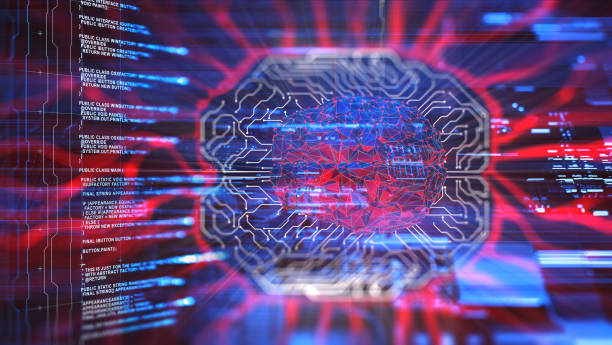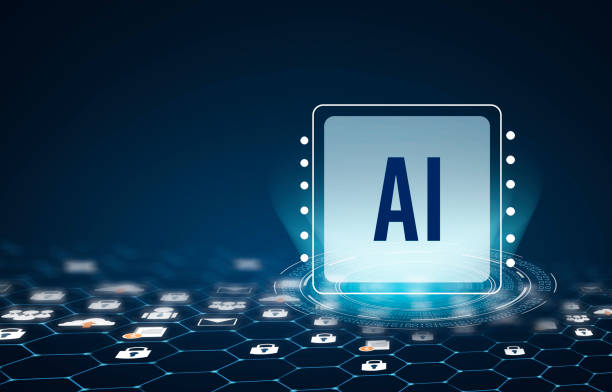What is artificial intelligence and what role does it play in today’s world?
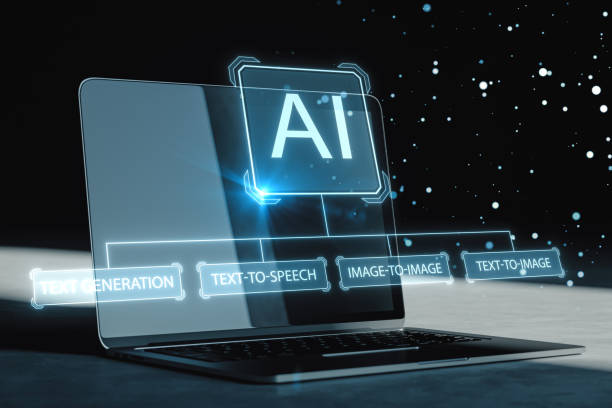
What is artificial intelligence and what role does it play in today’s world?
Artificial intelligence (#AI) refers to a branch of computer science that deals with building machines that are capable of performing tasks that usually require human intelligence.
These tasks include learning, reasoning, problem-solving, language understanding, and pattern recognition.
In today’s world, artificial intelligence is rapidly penetrating various aspects of our lives, including medicine, transportation, manufacturing, customer service, and many other fields.
#Job_Future will undergo significant changes with artificial intelligence.
The role of artificial intelligence in today’s world is very broad.
For example, in medicine, artificial intelligence can help doctors diagnose diseases and provide better treatments.
In transportation, self-driving cars using artificial intelligence are being developed and can help reduce accidents and improve traffic.
In manufacturing, robots equipped with artificial intelligence can perform repetitive and dangerous tasks and help increase productivity.
In customer service, chatbots using artificial intelligence can answer customer questions and solve their problems.
In short, artificial intelligence is a powerful technology that has the potential to create many positive changes in our world.
However, it is important to develop this technology responsibly and considering its social and economic effects.
The future of AI jobs depends on this responsible development.
Is your online sales not as expected? With Rasaweb, solve the problem of low sales and poor user experience forever!
✅ Increase the conversion rate of visitors to customers
✅ Create a pleasant user experience and increase customer trust
⚡ Act now to receive free consultation!
Key trends and developments in the field of artificial intelligence
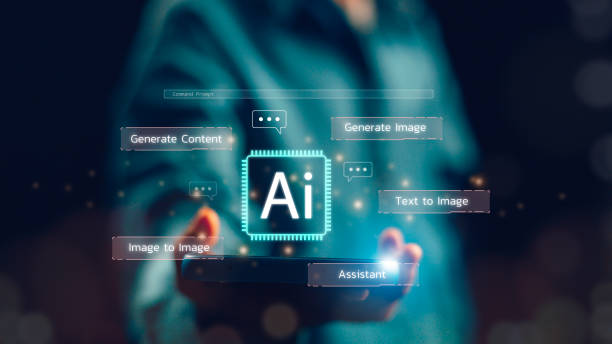
Key trends and developments in the field of artificial intelligence
The field of artificial intelligence is rapidly evolving and we are witnessing the emergence of new technologies and approaches every day.
Some of the key trends in this field include Deep Learning, Natural Language Processing (NLP), and Computer Vision.
Deep learning is a powerful technique that allows machines to learn from voluminous data and recognize patterns.
Natural language processing enables machines to understand and interact with human language.
Computer vision enables machines to see and interpret images and videos.
These trends will have a profound impact on the future of AI jobs.
For example, with the development of deep learning, new job opportunities will be created in areas such as deep learning model development, model training, and performance evaluation.
With the advancement of natural language processing, new job opportunities will be created in areas such as chatbot development, machine translation, and text analysis.
With the development of computer vision, new job opportunities will be created in areas such as facial recognition system development, self-driving cars, and automated inspection.
Also, developments such as Generative AI and Explainable AI are also emerging that can have widespread effects on various industries.
These developments will further transform the future of AI jobs.
Industries most affected by artificial intelligence
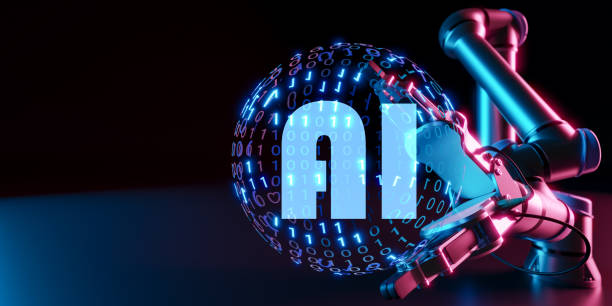
Industries most affected by artificial intelligence
Artificial intelligence affects almost all industries, but some industries benefit more from this technology than others.
These industries include:
- Medicine and Healthcare: Artificial intelligence is used in disease diagnosis, drug development, patient care, and hospital management.
- Finance and Banking: Artificial intelligence is used in fraud detection, risk assessment, capital management, and customer service.
- Manufacturing: Artificial intelligence is used in process automation, quality control, predictive maintenance, and supply chain optimization.
- Retail: Artificial intelligence is used in personalizing the shopping experience, managing inventory, predicting demand, and customer service.
- Transportation: Artificial intelligence is used in self-driving cars, traffic management, route optimization, and logistics.
In each of these industries, the future of AI jobs will be shaped differently.
Some traditional jobs may become obsolete, while new jobs relying on artificial intelligence will be created.
In particular, data analysis and predictions resulting from artificial intelligence help companies make better decisions and increase their competitiveness.
This increases the need for artificial intelligence specialists in these industries.
| Industry | Key applications of artificial intelligence | Impact on the future of AI jobs |
|---|---|---|
| Medicine and Healthcare | Disease diagnosis, drug development, patient care | Creating new job opportunities for the development and implementation of artificial intelligence systems |
| Finance and Banking | Fraud detection, risk assessment, capital management | Increasing demand for artificial intelligence specialists in the field of risk management and data analysis |
| Manufacturing | Process automation, quality control, predictive maintenance | Replacing some traditional jobs with jobs related to automation and robotics |
New and emerging jobs in the field of artificial intelligence
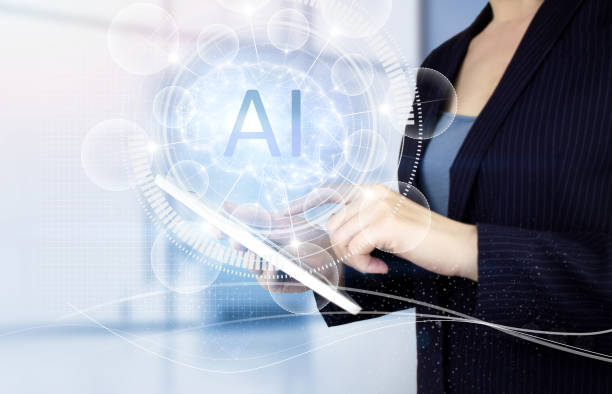
New and emerging jobs in the field of artificial intelligence
With the increasing use of artificial intelligence, new and emerging jobs are being created in this field that require specific skills.
Some of these jobs include:
- Data Scientist: Responsible for collecting, analyzing, and interpreting data to solve business problems.
- Machine Learning Engineer: Responsible for developing and implementing machine learning models.
- AI Engineer: Responsible for designing, developing, and implementing artificial intelligence systems.
- AI Ethics Specialist: Responsible for ensuring the ethical and responsible use of artificial intelligence.
- Robotics Engineer: Responsible for designing, building, and maintaining robots.
These jobs require a combination of technical knowledge, analytical skills, and creative thinking.
To succeed in these jobs, people need to have a relevant degree, practical experience, and a passion for continuous learning.
The future of AI jobs will be very bright for those who acquire skills in these areas.
In addition, with the further development of artificial intelligence, other new and emerging jobs will be created that we cannot yet predict accurately.
For this reason, it is important for people to always be prepared to learn new skills and keep pace with developments in this field.
Does your current website create the trust that potential customers should have in your business? If the answer is no, it’s time to have a professional and impactful company website with Rasaweb.
✅ Completely customized design to match your brand identity
✅ Increase lead generation and credibility of your business in the eyes of customers⚡ Contact us for a free consultation!
Skills needed to succeed in the future of AI jobs
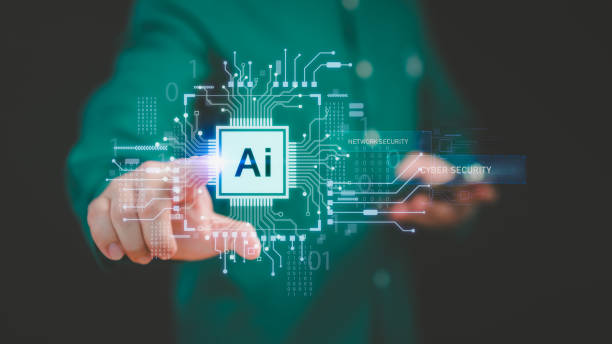
Skills needed to succeed in the future of AI jobs
To succeed in the future of AI jobs, in addition to technical knowledge, you also need other skills.
These skills include:
- Problem-solving skills: The ability to identify, analyze, and solve problems and provide effective solutions.
- Critical thinking skills: The ability to evaluate information and arguments logically and impartially.
- Communication skills: The ability to communicate effectively with others, both verbally and in writing.
- Teamwork skills: The ability to work with others to achieve common goals.
- Lifelong learning skills: The ability to learn and adapt to rapid changes in the field of artificial intelligence.
These skills help you to operate effectively in complex and dynamic environments and face new challenges.
Also, these skills help you to collaborate with others and present your ideas effectively.
To strengthen these skills, you can participate in training courses, read relevant books and articles, and participate in practical projects.
The future of AI jobs belongs to people with these skills.
The impact of artificial intelligence on traditional jobs and how to adapt to it
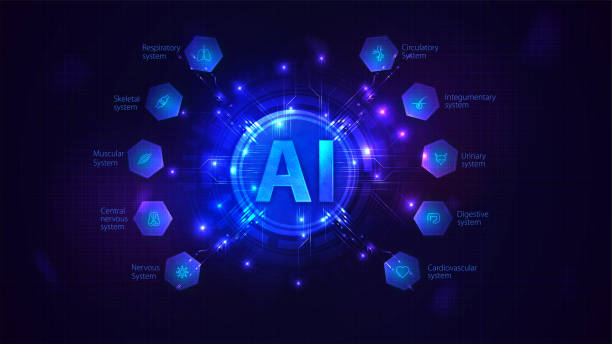
The impact of artificial intelligence on traditional jobs and how to adapt to it
Artificial intelligence will have a significant impact on traditional jobs.
Some jobs may be completely automated and disappear, while others will need to change and adapt to new technologies.
To adapt to these changes, people need to:
- Learn new skills: Instead of focusing on traditional skills, learn new skills that are related to artificial intelligence technologies.
- Change their role in the organization: Instead of performing repetitive and routine tasks, focus on tasks that require creative thinking, problem-solving, and human interaction.
- Become familiar with new technologies: Become familiar with artificial intelligence technologies and learn how to use them in their work.
- Be ready for change: Be ready to change and adapt to new conditions.
In general, people who are able to learn new skills, adapt to changes, and collaborate with machines can succeed in the future of AI jobs.
Companies should also provide their employees with the necessary training and support in this area.
This adaptation is key to survival in the future world of work.
How to start learning and studying artificial intelligence?
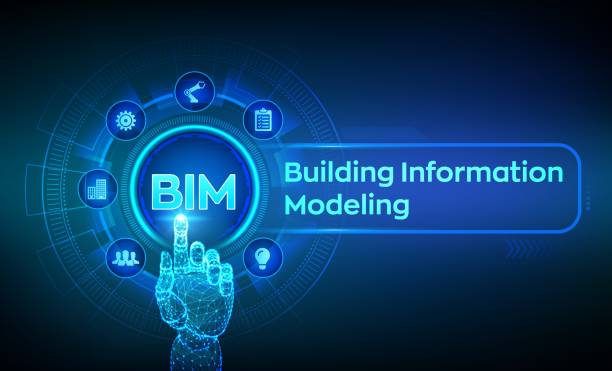
How to start learning and studying artificial intelligence?
To start learning and studying artificial intelligence, you can use various resources.
Some of these resources include:
- Online courses: Online educational platforms such as Coursera, Udemy, and edX offer various courses in the field of artificial intelligence.
- Books and articles: There are many books and articles in the field of artificial intelligence that you can use to learn basic and advanced concepts.
- Practical projects: Doing practical projects helps you to apply your knowledge in practice and strengthen your skills.
- Online forums: There are many online forums in the field of artificial intelligence where you can ask your questions and exchange ideas with others.
To begin, you can familiarize yourself with basic artificial intelligence concepts such as machine learning, deep learning, and natural language processing.
Then, you can learn a programming language like Python and use libraries like TensorFlow and PyTorch to develop artificial intelligence models.
The future of AI jobs depends on continuous learning and gaining practical experience.
| Educational source | Features | Advantages | Disadvantages |
|---|---|---|---|
| Online courses (Coursera, Udemy, edX) | Diverse educational content, experienced teachers, practical projects | Easy access, flexibility in scheduling, relatively low cost | Need for self-discipline, lack of face-to-face interaction |
| Books and articles | Deep and specialized content, broad coverage of topics | Low cost, permanent access | Need for background knowledge, time-consuming |
| Practical projects | Practical experience, learning by doing | Strengthening skills, creating a portfolio | Need for basic knowledge, time-consuming |
Challenges and concerns related to the development of artificial intelligence
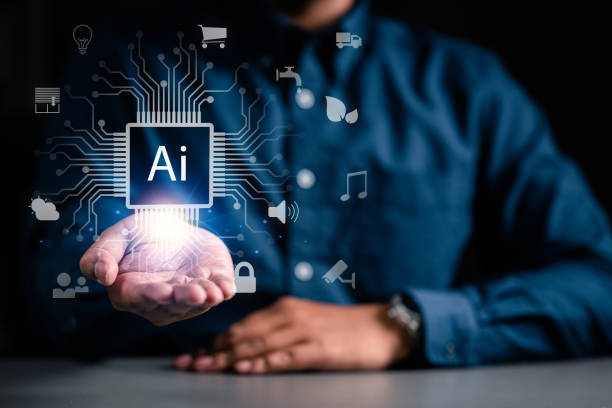
Challenges and concerns related to the development of artificial intelligence
The development of artificial intelligence is also associated with challenges and concerns.
Some of these challenges and concerns include:
- Job loss: Automation of many tasks by artificial intelligence can lead to job loss.
- Inequality: Artificial intelligence can lead to increased economic and social inequality.
- Privacy: The collection and use of personal data by artificial intelligence systems can violate people’s privacy.
- Ethics: Automated decision-making by artificial intelligence systems can create complex ethical issues.
- Security: Artificial intelligence systems can be vulnerable to cyber attacks.
To address these challenges and concerns, governments, companies, and researchers need to work together and develop appropriate policies and regulations.
Also, it is necessary to increase education and public awareness about artificial intelligence.
The future of AI jobs depends on how these challenges are managed.
Are you losing business opportunities because of an old website? With Rasaweb, solve the problem of not attracting potential customers through the website forever!
✅ Attract more high-quality leads
✅ Increase brand credibility in the eyes of customers
⚡ Get a free company website design consultation
The future of AI jobs in Iran
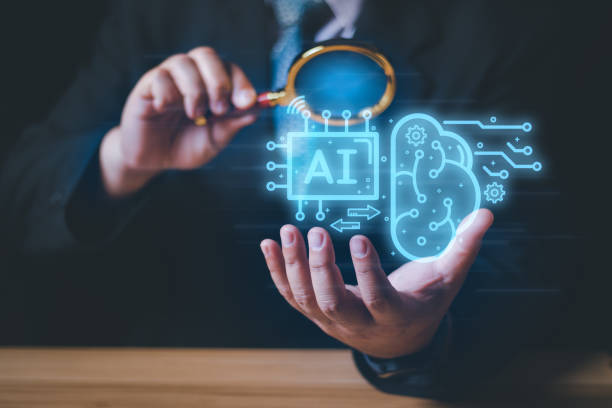
The future of AI jobs in Iran
The prospect of the future of AI jobs in Iran, like elsewhere in the world, is growing.
Given the high potential of artificial intelligence in improving productivity and creating added value, many companies and organizations in Iran are investing in this area.
These investments will lead to the creation of new job opportunities for artificial intelligence specialists.
However, to fully realize this potential, the government and the private sector need to work together and provide the necessary infrastructure for the development of artificial intelligence.
This infrastructure includes:
- Education: Developing educational programs in the field of artificial intelligence in universities and educational centers.
- Research and Development: Supporting research and development projects in the field of artificial intelligence.
- Data: Providing access to high-quality data for training artificial intelligence models.
- Investment: Attracting investment in startups and companies active in the field of artificial intelligence.
With this infrastructure in place, the future of AI jobs in Iran can be very bright and promising.
Also, Iran can become one of the artificial intelligence hubs in the region.
Key points for entering the artificial intelligence job market
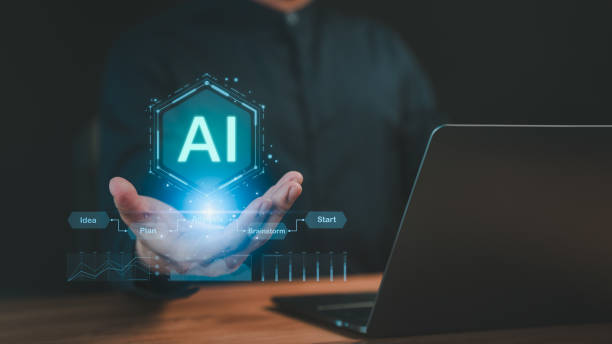
Key points for entering the artificial intelligence job market
To enter the artificial intelligence job market, it can be helpful to consider the following points:
- Learn basic concepts: First, familiarize yourself with basic artificial intelligence concepts such as machine learning, deep learning, and natural language processing.
- Learn a programming language: Learn a programming language like Python.
- Work with libraries and tools: Familiarize yourself with artificial intelligence-related libraries and tools such as TensorFlow and PyTorch and learn how to use them.
- Do practical projects: Do practical projects to apply your knowledge in practice and strengthen your skills.
- Create a strong resume: Create a strong resume that clearly shows your skills and experiences.
- Networking: Connect with artificial intelligence specialists and participate in related events.
- Prepare for interviews: Prepare for job interviews and practice frequently asked questions.
By following these tips and with effort and perseverance, you can enter the artificial intelligence job market and succeed in the future of AI jobs.
Always remember that continuous learning and adaptation to changes is the key to success in this field.
The future of AI jobs requires a commitment to learning and progress.
Frequently Asked Questions
| Question | Answer |
|---|---|
| How will artificial intelligence affect the future job market? | Artificial intelligence automates repetitive jobs, but at the same time it will create new and more complex jobs in areas such as development, maintenance and training of artificial intelligence systems. |
| Which jobs are most at risk of being replaced by artificial intelligence? | Jobs that involve repetitive, rule-based tasks with little need for creativity or emotional intelligence, such as some manufacturing, data entry, and simple customer service jobs, are most at risk. |
| What skills are necessary to succeed in a future career with the presence of artificial intelligence? | Skills such as critical thinking, complex problem solving, creativity, emotional intelligence, data literacy, the ability to work with artificial intelligence, and lifelong learning are of high importance. |
| Will artificial intelligence cause widespread unemployment? | Some jobs will disappear, but history has shown that new technologies, instead of widespread unemployment, cause the transformation of the job market and the creation of new jobs. The need for adaptation and retraining is important. |
| What new job opportunities are emerging with the emergence of artificial intelligence? | Jobs such as machine learning engineer, data scientist, artificial intelligence ethicist, human-AI interaction designer, and digital transformation consultant are among the new opportunities. |
| What is the role of education in preparing for the future of work with artificial intelligence? | Education should focus on developing soft skills, computational thinking, digital literacy, and the ability to learn continuously to prepare people for future changes. |
| How can I prepare myself for the job market changes caused by artificial intelligence? | You can prepare yourself by learning new skills related to artificial intelligence and data, strengthening soft skills, developing critical thinking and creativity, and getting used to lifelong learning. |
| Will artificial intelligence ethics become an important career field? | Yes, given the increasing concerns about biases, privacy, and automated decision-making of artificial intelligence, the role of artificial intelligence ethics experts will be vital to ensure its responsible development. |
| What is the importance of human-artificial intelligence collaboration in the future of work? | The collaboration of humans and artificial intelligence, instead of competition, shapes the future of the job market. Artificial intelligence can be a tool to increase productivity and focus humans on more complex and creative tasks. |
| Which industries will be most affected by artificial intelligence? | Almost all industries will be affected, but areas such as health care, finance, transportation, manufacturing, education, and customer service are pioneers in acceptance and transformation by artificial intelligence. |
And other services of Rasa Web advertising agency in the field of advertising
Smart digital branding: a combination of creativity and technology for digital branding through intelligent data analysis.
Smart digital advertising: an effective tool to analyze customer behavior with the help of using real data.
Smart SEO: A fast and efficient solution for managing campaigns with a focus on accurate audience targeting.
Smart digital branding: an effective tool for digital branding by designing an attractive user interface.
Smart digital advertising: a creative platform to improve website traffic by intelligently analyzing data.
And more than hundreds of other services in the field of internet advertising, advertising consulting and organizational solutions
Internet advertising | Advertising strategy | Reportage advertisement
Resources
Promising career branches of artificial intelligence
,Jobs related to artificial intelligence
,Artificial intelligence does personal things more than ever
,Artificial intelligence and data science job opportunities in the future
? In order for your business to shine online and achieve digital goals, Rasaweb Afrin Digital Marketing Agency paves your path to success by providing comprehensive services including professional company website design and innovative digital marketing strategies.
📍 Tehran, Mirdamad Street, next to the Central Bank, Southern Kazerun Alley, Ramin Alley No. 6


